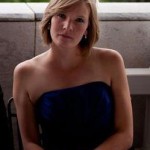As with every year, I like to reflect upon the best of the best books I read throughout the year. This year, out of the 30+ books I read, it was very difficult to narrow down because they were all very good. Not a single one was bad or poorly written, so those books categorized as “Worst” simply did not live up to my expectations. As always, these are my biased opinions.
Most Influential
Man’s Search For Meaning by Viktor Frankl
If you have never read this book, you absolutely must. Frankl masterfully weaves his own story of his time in Nazi concentration camps with his astute observations as a psychoanalyst. He observed that those who believed that they had a purpose to live for, did in fact, remain alive and in relatively better health than those who lacked purpose. When someone succumbed to hopelessness, it was a quick descent to sickness and death. This observation inspired what later be came to be known as logo-therapy. A very important break-through in psychology. I’m making it sound far more dry than it is, but it is amazing.
Joan Chittester: Essential Writings compiled by Mary Lou Kownacki
I’ve never read a book that expressed so fully the deepest echoes and beliefs etched in my heart. I read this book to pass the time while I sat in hospital after hospital, for hours upon hours with my brother this past month. So perhaps my memories of the truths encompassed in this book are a bit magnified by that stressful time, but truths are still truths, nevertheless. Joan is a Benedictine nun who is not shy about her beliefs, her deep love of Christ and his church, or her criticisms of it. Her writings are many times a challenge to the church to take a leap of faith in following the example of Christ; specifically in the area of allowing women to fully be acknowledged as an equal part in Christ’s kingdom.
Worst
The Wind in the Willows by Kenneth Grahame
My only experience with this classic was the Toad’s Wild Ride at Disney World when I was 3 or 4 years old. I have fond memories of that particular ride because it didn’t scare the bejeezus out of me like the Snow White ride did. So thinking fondly back to that experience, I had high hopes for a fun and frivolous tale. Frivolous it was, but not so much fun. The antics of Mr. Toad sounded too much like someone who struggles with Bipolar and having had way too much experience with being the responsible one trying to keep the Mr. Toad’s alive, I did not find the book enjoyable as I had hoped.
Hannah Coulter by Wendell Berry
This book was recommended to me by several friends as being a terrific book, so I must’ve been expecting something different. The first 13 chapters felt very forced, as if the older male author was having a difficult time knowing what a young woman would think and feel. (I learned after reading it that this was Berry’s first time writing from a female character’s perspective. It shows.) The main character, Hannah Coulter, is extremely passive in her own life and her reactions to things that happen in her life seem rather unbelievable. She’s alternately timid and bold, and seems to cry at the drop of a hat sometimes, but not at the times when tears seem most natural or appropriate. For instance, the first few chapters are all about her strong love for her grandmother, but when her grandmother passes away half way through the book, there is one quick passing sentence. No grief, just a quick “oh yeah, and by the way, and she died a while back” sort of feel. The book gets significantly “truer” as she ages, because her thinking becomes less gender-driven and more universal and parental in her reflections. There are some gold nuggets of wisdom about life and aging tucked away in there too. So although I wanted to rip up the first half, I was glad that I held on until the end.
Best Fiction
The Power and the Glory by Graham Green
This was by far the most moving of the fictional books I read this year. This book takes place in Mexico at a time when the Catholic Church was being persecuted. Without giving anything away (because it is an absolute must-read), the story follows a persecuted “Whiskey Priest” who is running from the law, while still trying to minister throughout Mexico and how, even though he is completely flawed, God is still able to work through him. It is a beautiful and redemptive picture of unmerited grace for highly imperfect people.
All The Lights We Cannot See by Anthony Doerr
This was truly a lovely book. The story is a weaving of the lives of two characters: a blind girl and a German boy before and during WWII. The chapters are short and lyrical and for the movement of the story, Doerr chooses to jump back and forth in time to give us enough thrilling forward glimpses to keep the reader hooked, and enough backward glances to help us love and feel connected to the characters and their disparate worlds. He does a wonderful job making the reader “see through the eyes” of the blind girl too—how things feel, smell, taste, and sound. I can see how some readers might be annoyed at the shifting back and forth in time and perspectives, but by the end, I understood why he did it, and I found it to be essential to the story-telling.
Best Non-Fiction
The Devil in the White City by Erik Larson
If you have ever desired to be immersed in a different time in history, Larson has done the enormous amounts of research to help you do that. It is the crazy story of the 1893 Chicago World’s Fair and the amazing amount of work and perseverance that made it possible. Alongside the story of the building of the fair is also the story of America’s first serial killer, H.H. Holmes. If you are disturbed by that sort of thing (and trust me, it’s disturbing), you can either skip those chapters or forego reading the book altogether.
In Cold Blood by Truman Capote
After learning about Truman Capote’s friendship to Harper Lee (the author of To Kill a Mockingbird) and the fact that she helped him do the research for this book, I felt like I might be missing out if I didn’t read it. I was not disappointed. This book is filled with thoughtful prose of the southern variety (to which I’m always biased), fully developed characters masterfully interwoven throughout the story, and a kind of psychological study on the what drives people to kill. If you enjoy history or understanding the “why of people” like I do, you will really enjoy this book.
The New Tsar: The Rise and Reign of Vladimer Putin by Steven Lee Myers
I’ve been following Russian politics since I was in high school because I’m a nerd and weird, so for me, this book filled in quite a few gaps that Russian and American news reporting left at the time of many of the events mentioned in the book. Myers did a wonderful job with his in-depth research for the book, gathering both favorable and unfavorable information. I especially enjoyed reading of Putin’s private interactions and conversations with former President George Bush. It was interesting to get a glimpse of the private Putin—quiet, abusive, and aloof—not just be fed more state-issued propaganda of the powerful leader (as much of Russian news does). If you have any interest in international politics, it seems like now is the perfect time to get better idea of Russia’s enigmatic leader…since we might be seeing much more of him in the coming years.
Best Memoir
Helmet For My Pillow by Robert Leckie
You may be familiar with this book since the series “The Pacific” was partially based on it. It is a beautifully written account of WWII in the Pacific Theater, replete with enough 1940’s culture references and colloquialisms, to drop you right into that time period. Leckie is a Marine Corps grunt with the heart of a writer. The most amazing thing about this memoir in contrast to many others, is the view of nature being more brutal an enemy than the actual Japanese enemy. And the memoir is bigger and more important than just reporting about his own time in war. He uses the tortuous monotony of the everyday trials to bring forth the bigger questions about life and humanity in an eloquent, but unsentimental way.
All Over But the Shoutin’ by Rick Bragg
My husband (the dear, sweet man) bought me this book after he heard the author on NPR talking about his memoir. Even though Bragg was raised in Alabama in the 1960’s and 70’s, I could not help but notice the many similarities to my own southern upbringing (probably the reason my husband thought of me). From the foods we ate, to the common phrases, to the societal norms and pressures that neither of our family’s lived up to, it seemed all too familiar. I really appreciated his honesty about himself and the confessional feel that ran throughout the book.
Best Fantasy
The Name of the Wind and Wise Man’s Fear (The King Killer Chronicles #1-2) by Patrick Rothfuss
These are tomes (the first being 661 pages and the second being 993 pages) and are totally worth every.single.word. I cannot say enough good things about these books. They are imaginative, exciting, eloquent, and just plain amazing! If you decide to read them, know that there are two downsides to reading this series. 1) You will need a few months to reset your fantasy expectations because once you’ve tasted a fine French wine, everything else will taste like vinegar and grape juice. 2) The last book in the series is not finished yet (it’s been 5 years).


Speak Your Mind